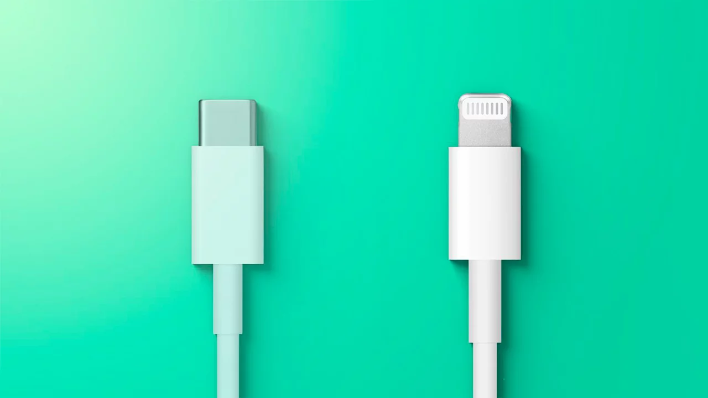The European Commission wants all consumer electronics manufacturers selling devices in Europe to use a USB-C port.
The European Commission has presented legislation that would oblige Apple to use a USB-C port on all iPhones, iPads and AirPods in Europe.
The proposal, known as a directive, would oblige all consumer electronics manufacturers selling devices in Europe to ensure that all smartphones, tablets, cameras, headphones, portable speakers, portable video game consoles have a USB-C port . This “common port” would have a particular impact on Apple as it uses the Lightning connector extensively rather than USB-C on many of its devices.
In 2018, the European Commission tried to reach a definitive solution on the issue, but failed to become law. At the time, the iPhone maker claimed that imposing a common charging port in the industry would stifle innovation and create e-waste as consumers would be forced to buy new cables. A European Commission impact assessment study conducted in 2019 found that half of all charging cables sold with mobile phones had a USB micro-B connector, 29% had a USB-C connector, and 21% had a USB-C connector. a Lightning connector. To date, the share of USB-C cables is significantly higher than all the others and Apple’s claims are no longer valid.
Environmental benefits, waste reduction, convenience and $ 293 million in annual savings for users are among the benefits of the new directive.
The bill also proposed that chargers should be sold separately from electronic devices , a move that Apple already initiated with the iPhone 12 and Apple Watch Series 6 models last year. The European Commission is also planning to review its ecodesign regulations to ensure interoperability of external power supplies for devices.

In a statement shared with Reuters, Apple said: “We are concerned about strict regulation that imposes a single type of connector that stifles innovation rather than encourages it, which in turn will harm consumers in Europe and around the world.” The company also expressed concern about the proposed two-year transition period to move to USB-C.
The directive must now receive the green light from the European Parliament and national governments, who can suggest amendments, before it can become law. The European Commission hopes this will happen in 2022. From then on, businesses will have two years to switch to the USB-C port on their devices.
What do you think?



Recent Comments